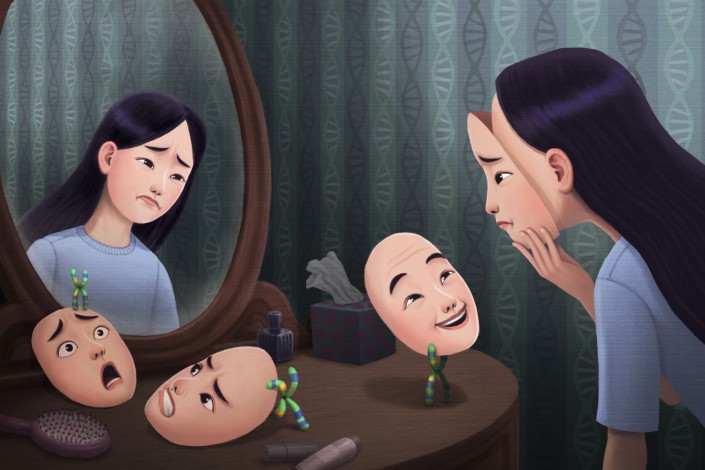Happy? Depressed? Not sure why? Your genes may amplify emotions

Illustration: Division of Research
Feeling upbeat? Feeling blue? A researcher at Texas A&M University says the genetic traits you inherited from your biological parents may amplify your emotions, good or bad.
Keith A. Young, a professor of psychiatry and behavioral science at the Texas A&M College of Medicine, has spent 20 years studying a genetic variant known to affect our emotional behavior.
Young’s research focuses on 5HTTLPR – a specific genetic variant of the serotonin transmitter gene. Serotonin is a brain chemical that moderates mood, appetite and desire.
When you were conceived, you inherited two copies the serotonin transmitter gene with two variants of 5HTTLPR: a short allele and a long allele. An allele is a genetic variant you inherit from your biological parents.
Previous research linked the short allele with overactive negative emotions. The research found people who inherit the short allele are more likely to develop depression and anxiety.
In a recent study, Young and his research team looked at how the short allele affects combat veterans deployed to war zones.
“We found the short allele was over-represented in veterans who returned from combat zones with post traumatic stress disorder,” Young said. “Our working hypothesis is that veterans who were deployed to war zones will have a harder time recovering back to normal if they possess the short allele.”
However, Young says, further research on the short allele indicates that its effect on our emotions could be more complex.
According to this research, people who have the short allele tend to laugh and smile more than those with the long allele. The study concluded the short allele amplifies emotions – emphasizing both the negative and the positive.
“The short allele is now thought of less as in black and white, or normal and defective, and is being pursued more quantitatively,” Young said. “It seems to heighten emotional experiences and impact a person’s emotional highs and lows. Those with the long allele do not experience these highs and lows.”

